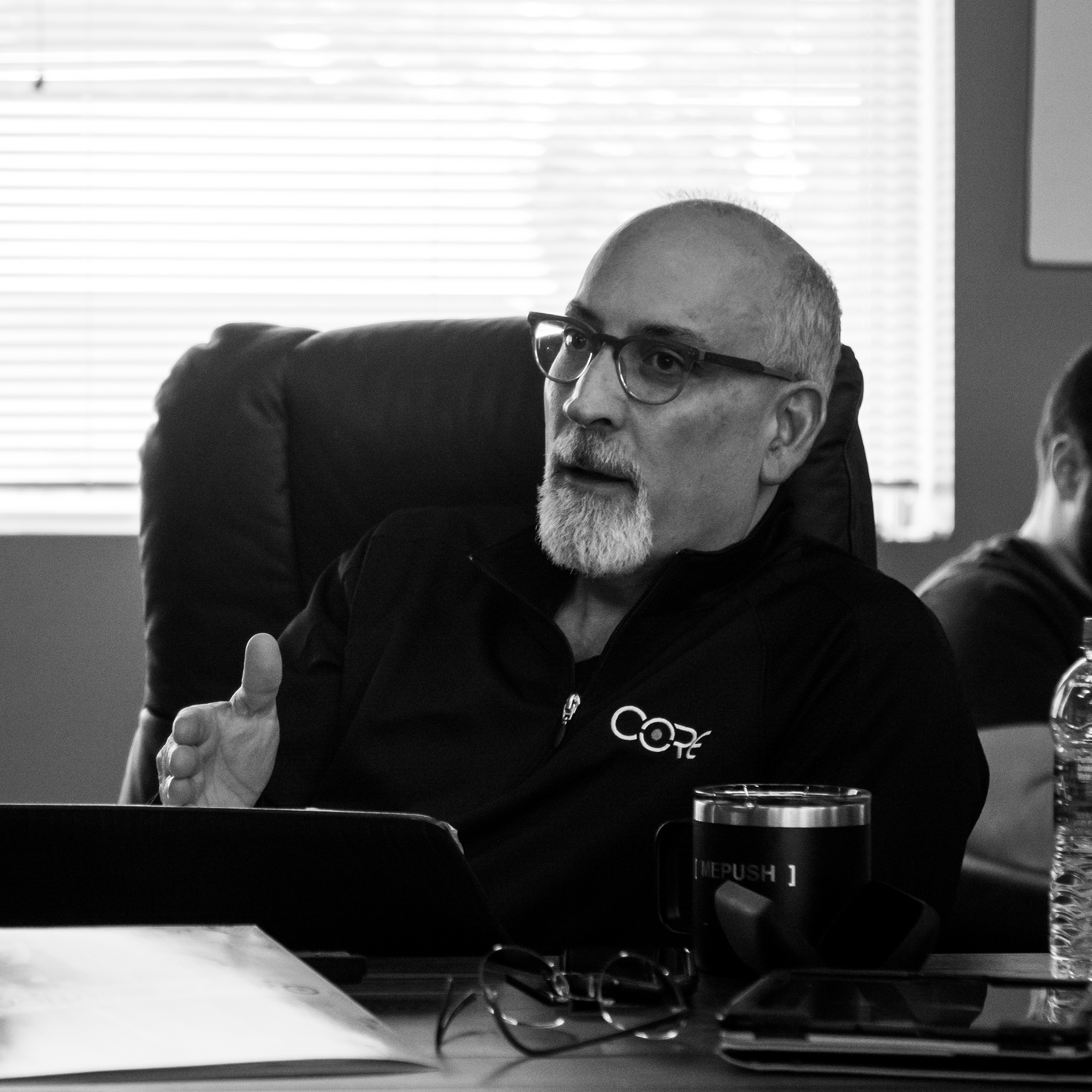ISO 9001 Certification Raleigh, NC

Local Consulting for the Raleigh, NC Market
ISO 9001 Quality Management System. 100% Success Rate.
Implementation with Core. 4 Steps. 4 Months. Done.
Raleigh, North Carolina: From Roots to Resilience
Raleigh, the capital of North Carolina, has long been a city where tradition and innovation converge. Its history in business reflects a dynamic journey of transformation, from a modest foundation rooted in agriculture to its current role as a hub for technology, research, and entrepreneurship. Known as part of the renowned Research Triangle, Raleigh’s business ecosystem is a testament to the city’s adaptability and visionary leadership.
ISO 9001 Certification Raleigh, NC
In the heart of North Carolina lies Raleigh, a city celebrated for its dynamic business ecosystem and unwavering commitment to innovation. Renowned as a cornerstone of the Research Triangle, Raleigh thrives on its robust technology sector, burgeoning startups, and world-class research institutions.
This vibrant and forward-thinking city has become a magnet for entrepreneurship and a hub for industries that shape the future. Within this landscape of ambition and progress, a growing number of Raleigh businesses are embracing ISO 9001 certification as a hallmark of quality and operational excellence.
Get a Free Quote
ISO 9001 Certification – Achieving the Highest Standards
ISO 9001 certification, an internationally recognized standard for quality management systems (QMS), provides a strategic framework for businesses to ensure consistent delivery of superior products and services while meeting customer expectations and regulatory requirements. In a city like Raleigh—where innovation drives growth and competition spurs excellence—the adoption of ISO 9001 certification underscores a company’s dedication to achieving the highest standards.
As Raleigh continues to lead in technology, research, and industry, ISO 9001 certification is becoming a vital tool for businesses looking to build trust, enhance efficiency, and solidify their place in this dynamic market.
Early Beginnings: Agriculture and Trade
In its earliest days, Raleigh’s economy was shaped by agriculture, the dominant industry in the region during the 18th and 19th centuries. The city’s fertile lands supported the production of tobacco, cotton, and other crops that formed the backbone of North Carolina’s economy. Small-scale manufacturing and trade centers emerged to support agricultural activities, including gristmills, sawmills, and warehouses.
The construction of railroads in the mid-19th century transformed Raleigh into a trade and transportation hub. Rail connectivity made it easier to ship agricultural products to distant markets, spurring growth in related industries like warehousing and distribution.
The Rise of Education and State Government
As the state capital, Raleigh’s economy became increasingly tied to government activities and education. The establishment of North Carolina State University (NCSU) in 1887 played a significant role in shaping the city’s economic trajectory. Focused on agriculture, engineering, and applied sciences, NCSU not only supported local industry but also sowed the seeds for Raleigh’s future as a center for innovation and research.
By the late 19th century, Raleigh was also home to a burgeoning printing and publishing industry, bolstered by its role as a government and educational center. Local newspapers, book publishers, and other media-related businesses flourished.
Industrial Growth and Diversification
In the early 20th century, Raleigh saw significant industrial expansion. Tobacco processing, textiles, and furniture manufacturing became major contributors to the city’s economy. Companies like Cameron Village, one of the nation’s first planned shopping centers, reflected Raleigh’s growing affluence and consumer culture.
The mid-century brought further diversification, with the city investing in infrastructure and business-friendly policies that attracted new industries. Raleigh’s downtown area experienced commercial growth, as small businesses, retail establishments, and banks thrived.
What is the ISO 9001 Certification Process?
In a nutshell, the certification process involves an independent third-party certification body that conducts an audit of the company’s quality management system to ensure that it meets the requirements of the standard. The audit includes a review of the company’s processes, documentation, and procedures to ensure that they are aligned with the standard. Once the audit is completed, the certification body issues the ISO 9001 certification.
The Benefits of ISO 9001 Certification
ISO 9001 certification is not only beneficial for large organizations but also for small and medium-sized enterprises. In Washington DC, many businesses of all sizes have pursued ISO 9001 certification to improve their competitiveness, enhance their customer satisfaction, and expand their business opportunities.
What is the Cost of ISO 9001 Certification?
The cost of ISO 9001 certification with Core Business Solutions, Inc. varies depending on the size and complexity of the organization. However, we offer a transparent pricing structure that is based on the number of employees in the organization. It costs between $5,700 and $15,000 to prepare and between $3,000 and $5,000 to certify, depending on the company size and how much prep time you choose to take.
Additional Costs of ISO 9001 Certification
In addition to the cost of certification, there are other costs associated with achieving ISO 9001 certification. These may include the cost of training employees in the requirements of the standard and the cost of conducting internal audits to ensure compliance with the standard. However, the benefits of ISO 9001 certification often outweigh the costs. ISO 9001 certification can help organizations improve their operations, reduce costs, increase customer satisfaction, and enhance their reputation.
Consulting Programs Annually
Years Helping Customers
+8,000 Customers Trust Core
Core Business Solutions Consulting in Raleigh, NC
Core Business Solutions is a leading provider of ISO 9001 consulting services with local consultants in Raleigh. We work with companies of all sizes and industries in Raleigh to help them achieve ISO 9001 Certification and improve their business processes. Core Business Solutions offers a comprehensive suite of services, including gap analysis, documentation development, training, and internal auditing.
What it’s like Working with Core Business Solutions
Chris R. an executive at Semper Valens Solutions, worked closely with one of our lead consultants, Pat Gagner, to acquire the ISO 20000-1 and ISO 27001 certifications. Chris acknowledged and commended Pat’s “invaluable contributions.” Chris further commented about Pat’s leadership and expertise saying that “Pat demonstrated an exceptional ability to break down complex ISO requirements into manageable and actionable steps, which was crucial for our understanding and implementation.”
Achieving ISO 20000-1 and ISO 27001 certifications can be a difficult task. Still, with the help of a knowledgeable and experienced consultant like Pat and the resources provided by Core Business Solutions, the process can be much easier. ISO Certification not only demonstrates a commitment to quality and customer satisfaction, but it can also improve business processes and increase efficiency, leading to greater success and profitability.
“Working with Bruce made gaining our ISO Certification very seamless. His knowledge and professionalism were greatly appreciated. I look forward to working with Bruce as we move into the next phase of our ISO journey.” Charles W, Strac Industries

“The powerful team at Core Business Solutions has created a product that will exceed all expectations. Their model, culture, and broad experience will benefit any organization, but will also give you a glimpse into what growth is available.” Bret S., Technical Chemical Company

So, How do You get ISO 9001 Certification? Here are the Steps:
Step 1: Develop a Quality Management System
The first step in getting ISO 9001 Certification is to develop a Quality Management System that meets the requirements of the standard. This involves identifying the processes and procedures that are necessary to manage your organization’s operations and improve quality control. You’ll need to document these processes and procedures and ensure that they’re tailored to your organization’s specific needs.
Step 2: Implement the Quality Management System
Once you’ve developed your QMS, it’s time to implement it throughout your organization. This involves training employees in the new processes and procedures and making sure everyone understands their role in the QMS. You’ll also need to integrate the QMS into your overall business processes to ensure that it’s functioning effectively.
Step 3: Conduct an Internal Audit
Before seeking certification, you’ll need to conduct an internal audit to make sure that your QMS is functioning effectively. This involves reviewing your processes and procedures to identify any areas that need improvement and making changes as necessary.
Step 4: Select a Certification Body
Once you’re confident that your QMS is functioning effectively, it’s time to select a certification body to conduct an external audit. This involves choosing an accredited certification body that will conduct a thorough review of your QMS to ensure that it meets the requirements of the ISO 9001 standard.
The Birth of the Research Triangle
The 1950s marked a pivotal moment in Raleigh’s business history with the establishment of the Research Triangle Park (RTP). Strategically located between Raleigh, Durham, and Chapel Hill, RTP was envisioned as a hub for innovation and high-tech research. The park attracted global companies and academic institutions, transforming the economic landscape of the region.
Major corporations like IBM and GlaxoSmithKline established operations in RTP, creating thousands of jobs and fostering a highly skilled workforce. Raleigh, as part of the Research Triangle, emerged as a leader in technology, pharmaceuticals, and research-based industries.
The Tech Boom and Urban Renaissance
By the late 20th century, Raleigh had fully embraced the tech revolution. The city became a magnet for startups and technology firms, benefiting from its proximity to top-tier research universities and a steady influx of skilled talent. The growth of software development, telecommunications, and IT services further cemented Raleigh’s reputation as a business-friendly city.
Raleigh’s downtown area underwent a renaissance in the early 2000s, with significant investments in revitalization projects. The city attracted a new wave of entrepreneurs and creative industries, leading to the rise of coworking spaces, boutique shops, and local craft breweries.
The Impact of ISO 9001 Certification on Quality Management Systems
Quality management systems (QMS) are essential for organizations prioritizing customer satisfaction, efficiency, and continuous improvement. ISO 9001 certification is a globally recognized standard that outlines the requirements for QMS implementation, maintenance, and improvement.
Implementing a QMS based on ISO 9001 promotes communication and collaboration between departments and individuals within the organization. Communication and collaboration lead to better decision-making, increased efficiency, and a more cohesive organization. By having a well-defined QMS, organizations can ensure that all stakeholders are on the same page and that everyone is working towards the same goals.
ISO 9001 Certification Raleigh, NC
Modern Business Landscape: Innovation and Sustainability
Today, Raleigh is a dynamic economic powerhouse known for its innovation, sustainability, and quality of life. The city consistently ranks among the best places to live and work in the United States, drawing companies and talent from around the globe.
Raleigh’s economy is anchored by diverse industries, including technology, healthcare, education, and green energy. Companies like Red Hat, a leader in open-source software, and Epic Games, the creators of Fortnite, have put Raleigh on the global map. Meanwhile, the city’s focus on sustainable growth has fostered investments in clean energy and environmentally friendly infrastructure.

